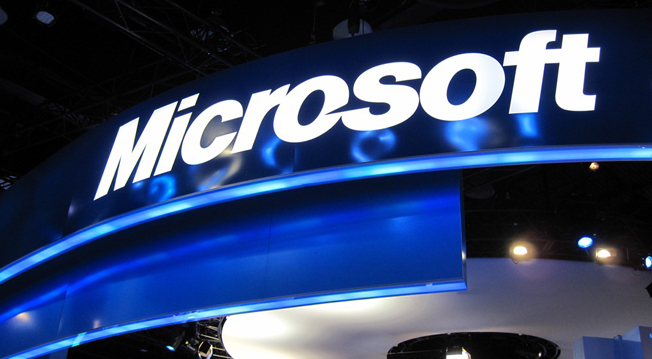Microsoft has long been the leader when it comes to personal computing, but the advent of mobile marked a major paradigm shift that Microsoft still hasn’t gotten a grasp on. Microsoft still dominates the PC market by a staggering margin; Windows currently powers 91.5% of all PCs currently in use, according to Net Applications’ June data. But there’s a huge problem: The PC market isn’t where the growth or profits are anymore when it comes to connected devices.
In a recent post on his blog titled “The irrelevance of Microsoft,” mobile analyst Benedict Evans shared a few charts that help illustrate why Microsoft is facing such a huge conundrum right now. One troubling chart shows the average selling price of personal computers plummeting as sales grew from 1995 onward. Another shows flat quarterly PC sales from 2007 through late last year as iPhone and Android smartphone sales climbed. But one chart in particular really shows us why Microsoft is in trouble right now:
Microsoft’s share of connected device sales peaked at more than 90% in early 2009. Consider that for a moment — more than nine out of every 10 connected devices sold were powered by a Microsoft operating system. Fast forward to the first quarter of 2013 and Microsoft’s share of connected device sales has plummeted to just over 20%.
“Windows 95 was the moment of victory, but was also the peak: it came just at the moment that the Internet started taking off, and Microsoft was never a relevant force on the internet despite investing tens of billions of dollars,” Evans wrote.
He continued, “But you needed a PC to use the internet, and for almost everyone that PC ran Windows, so Microsoft’s failure to create successful online services didn’t seem to matter. Microsoft survived and thrived in the PC internet era, despite appearing to be irrelevant, by milking its victory in the previous phase of the technology industry. PC sales were 59m units in 1995 and rose to over 350m in 2012. Of course, that’s now coming to an end.”
Evans noted that Microsoft and the PC market as a whole’s collapse will undoubtedly take some time, but there is apparently no turning back now. “Just as overnight success can take a lifetime, so overnight collapse can also take a long time,” he wrote.




